1. Types of Harnesses & Best Uses
- Standard H-Harness: Ideal for most breeds, with cross-chest and back straps for even pressure distribution.
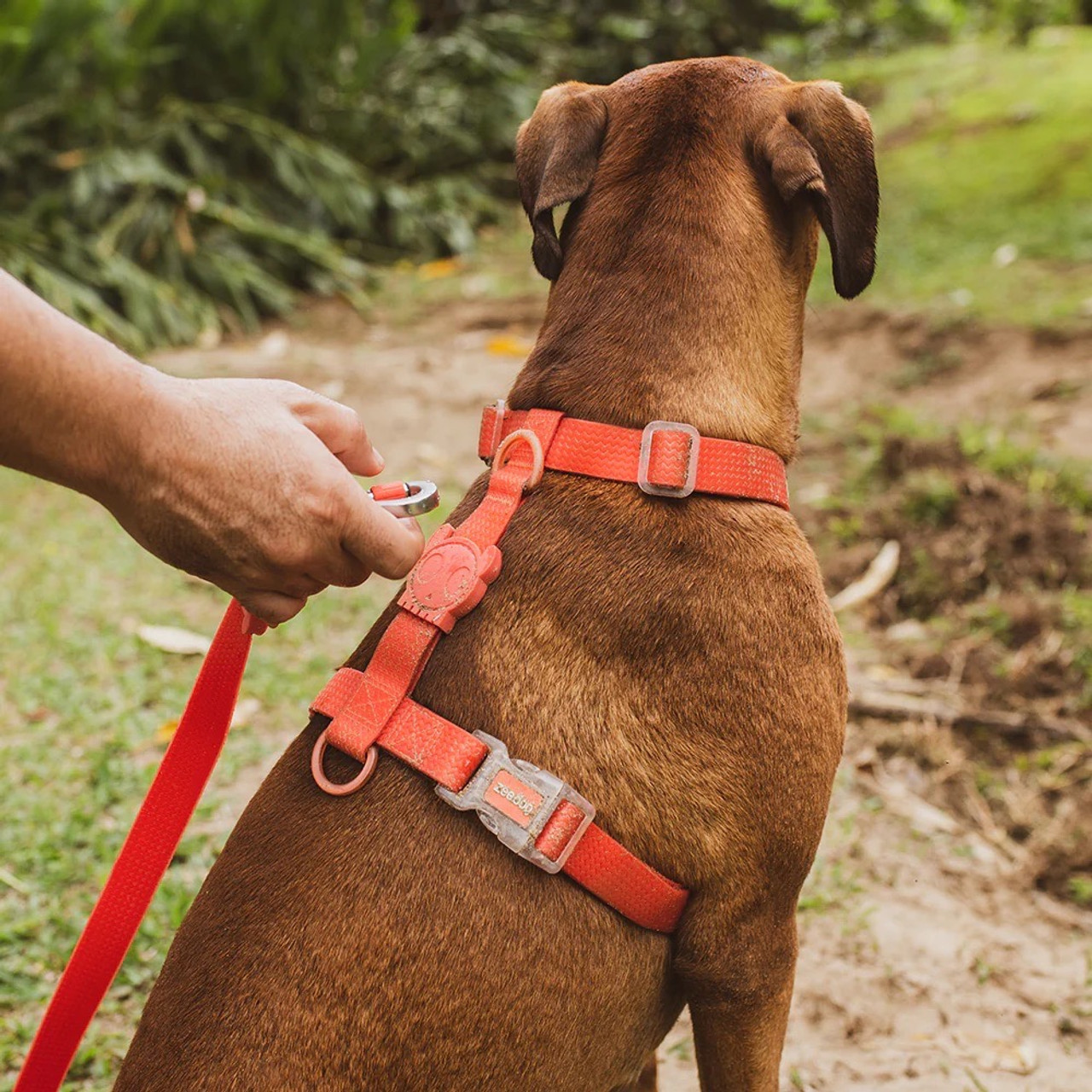
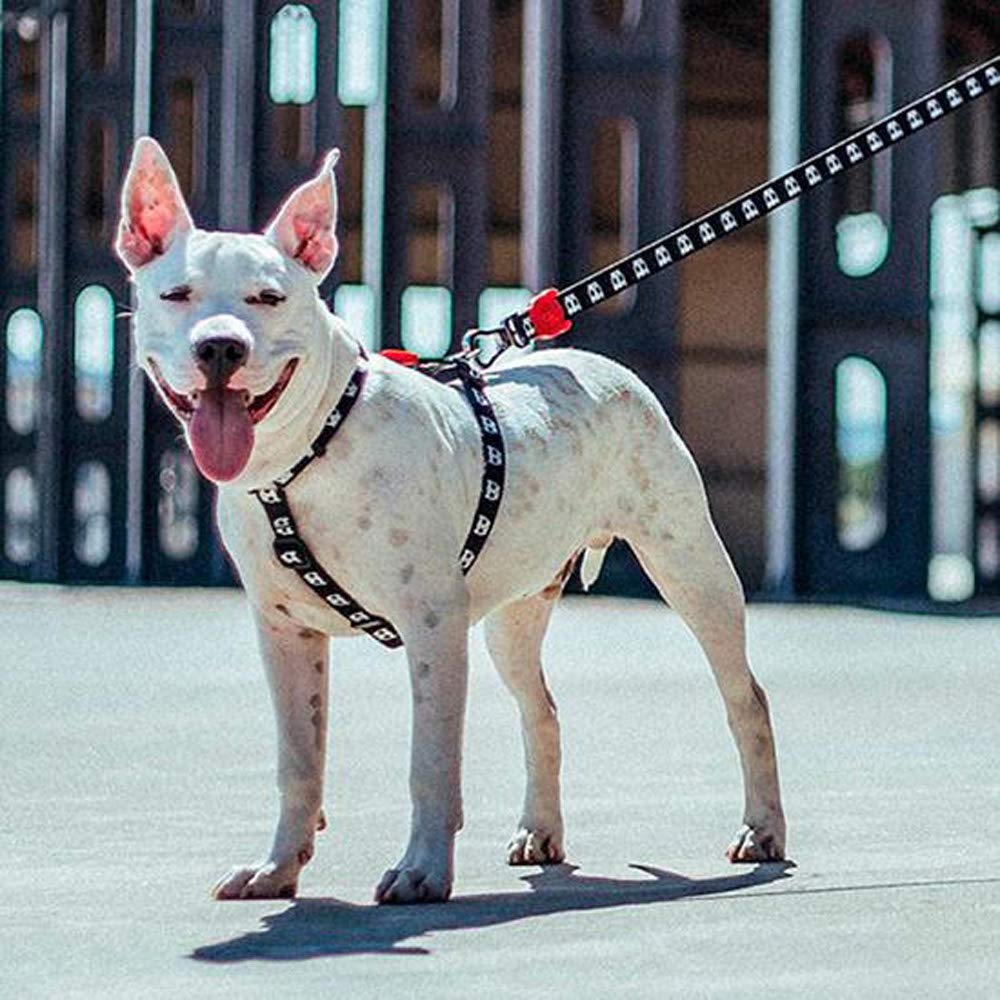
- Front-Clip Harness (chest attachment): Great for pullers—redirects movement by steering from the front.

- Back-Clip Harness (dorsal attachment): Best for well-trained medium/large dogs, but less effective for pulling control.
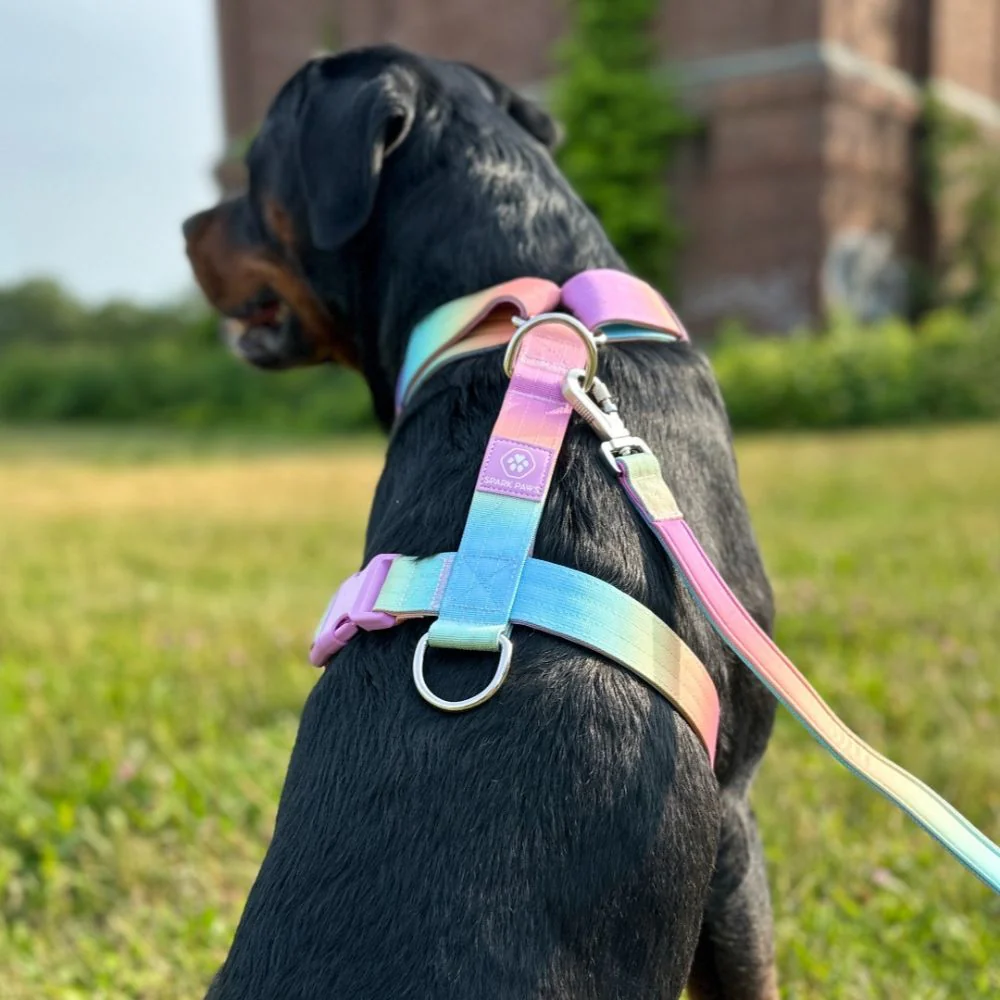
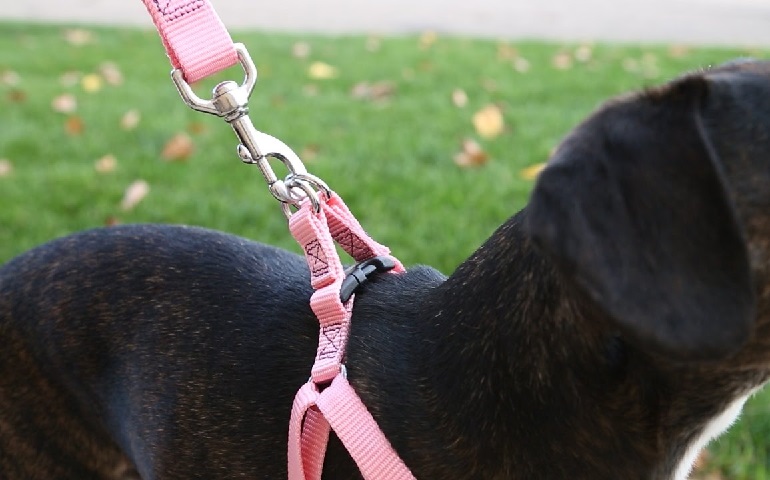
- No-Pull Harness (e.g., Y-shaped): Protects trachea, recommended for brachycephalic breeds (e.g., Pugs, French Bulldogs).
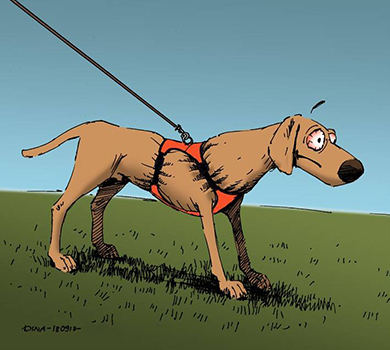
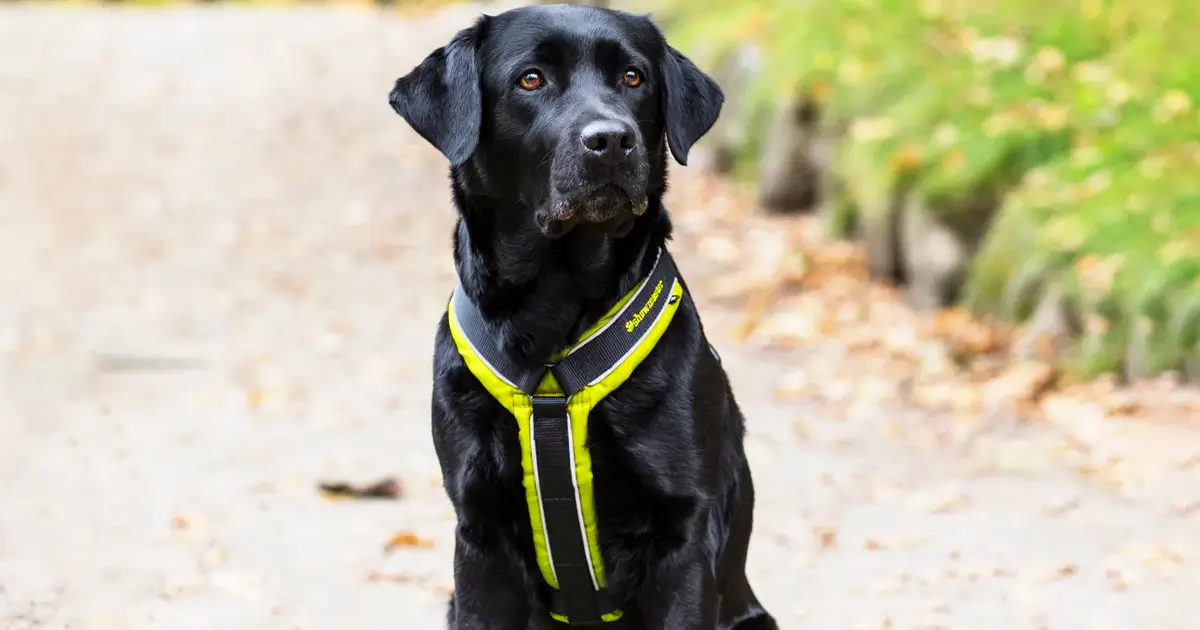
2. Key Selection Criteria
- Sizing: Measure the widest part of the chest and neck, leaving 1-2 fingers’ space for comfort.
- Material: Breathable mesh (summer), padded straps (large breeds), and reflective strips (night safety).
- Adjustability: Look for multiple buckle points to accommodate growth or seasonal fur changes.

3. Special Needs Considerations
- Behavioral Issues: Pullers benefit from front-clip designs; anxious dogs may prefer soft, full-coverage harnesses.
- Health Concerns: Dogs with joint issues need even weight distribution—avoid neck pressure (e.g., replace collars).
4. Fitting & Testing
- Proper Fit: The harness shouldn’t rub under the armpits; the chest strap should sit below the shoulder blades.
- Movement Check: Observe your dog walking to ensure comfort and no escape risks.
5. Common Mistakes to Avoid
- Cheap harnesses may break or chafe.
- Too tight = restricted breathing; too loose = legs slipping out.
Pro Tip: Always supervise your dog during initial harness use to ensure safety!
- Structured for easy scanning (subheadings, bullet points).
- Concise yet detailed for pet owners.
- Includes actionable advice and warnings.





